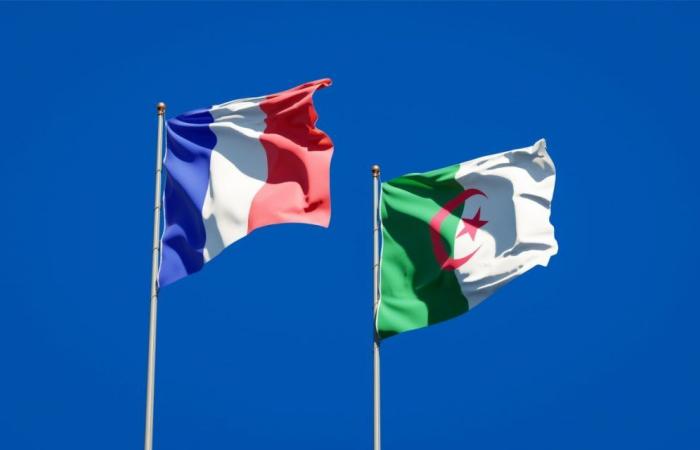The existence in France of a campaign, concerted or not, against Algeria, is not just an illusion in a context of strong diplomatic tension between the two countries. It has just been validated by a very serious voice from the French political class, namely the former Prime Minister and former Minister of Foreign Affairs Dominique de Villepin, whom no one can suspect of lobbying for Algiers without being ridiculed.
De Villepin, one of the last survivors of true Gaullism, is like that: he reveals the depths of his thoughts, even if it goes against the political good thinking of the moment. And this is very often the case. The world remembers that it was he who, as Jacques Chirac’s Minister of Foreign Affairs, stood up within the UN Security Council to the American warmongers who wanted to invade the country at all costs. Iraq.
Two decades later, he brings a different story to France on the situation in the Middle East. He was one of the first to call for a ceasefire in Gaza and an end to the massacre of the Palestinian population. For a year, and while the leitmotif on French sets has been “Israel’s right to defend itself”, Dominique de Villepin has been pleading for the two-state solution. Which obviously attracted the ready accusation of anti-Semitism.
Attacks against Algeria in France: “All this is absurd”
It is again he who defends Algeria, which has become the obsession of the hard right and the far right for several months. “All this is absurd,” the former Prime Minister raged this Monday, October 7 on the France Info set.
De Villepin used the most accurate words to describe things and put them in their proper place. “There is a temptation to make Algeria the scapegoat for France’s problems”, the accusations targeting it “far exceed reality” and this “friendly and brotherly country” “has not not to wear that,” thundered Dominique de Villepin. We must calm down and face things, he seemed to want to say to all those who get excited at the mention of Algeria.
De Villepin’s exit on Algeria confirms the divide which is tearing France in two on questions which, a priori, have nothing in common. Curiously, in today’s France, we find ourselves in the same trench as the pro-Israelis, the friends of Morocco and the anti-Algerians, at the head of whom are obviously those nostalgic for French Algeria.
The questions of immigration, the OQTF, consular passes, memory or even the 1968 agreement are seized on the fly, exaggerated and sometimes dramatized by the same current to break the momentum of the rapprochement between Algiers and Paris and at the same time delegitimize French elites of Algerian origin, because they come from a country that would be hostile.
France – Algeria: Dominique de Villepin confirms that there is an “absurd” anti-Algerian obsession
It is still curious that Algerian immigration only became more problematic than others when President Emmanuel Macron undertook with his Algerian counterpart Abdelmadjid Tebboune to move forward on several bilateral issues, starting with the memorial file to open a new page in the bilateral relationship, while Paris and Rabat were on the verge of rupture.
The accusations targeting Algeria on immigration are “absurd”, as De Villepin describes them, because they spare Morocco, a country much more problematic than its neighbor in terms of migration.
Speaking on Friday October 3 on RTL, the French Minister of the Interior Bruno Retailleau delivered a strange road map to resolve the OQTF puzzle (obligation to leave French territory): engage in a dialogue with Morocco that he “ respects enormously” and a standoff with Algeria, classified in the box of “recalcitrant” States, without even having initiated the slightest contact with its leaders.
Already there are no more Algerians than Moroccans in France. Official statistics give 12% of the total foreigners established on French territory for each of the two nationalities. The Moroccan government also does not issue more consular passes than its Algerian counterpart, in proportion to the number of visas issued to nationals of each of the two countries.
The kingdom also has a heavy history in terms of exploiting the migration issue, notably with blackmail exerted for many years on Spain until forcing its hand in March 2022 in the Western Sahara issue. And then the risk of massive flows is more in Morocco, where almost one in two young people is unemployed, than in Algeria.
Recent “great escape” attempts to the Spanish enclave of Ceuta are proof of this. If we add all the grievances that have been overwhelming the kingdom on the international scene for several years, it becomes even more incomprehensible that the friendship of this country is so sought after in France.
Morocco was the subject of two condemnations by the European Parliament in early 2023 for violating human rights and spying, via Israeli software Pegasus, on foreign personalities and officials, including the French president himself.
This indulgence towards Morocco, combined with the desire to do battle with Algeria which is turning into an obsession, undoubtedly hides more serious issues than just the migration problem.
This is perhaps one of the direct consequences of the kingdom’s decision to take the step of normalizing its relations with Israel, if we consider that in France, the supporters of unconditional support for Hebrew State are roughly the same ones who plead the cause of Morocco.






